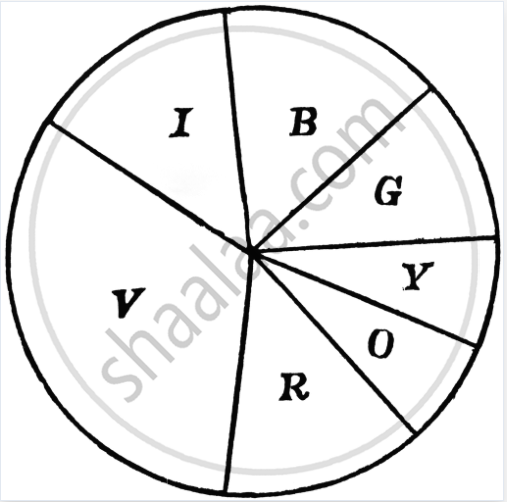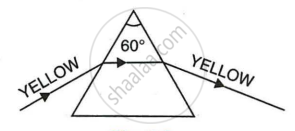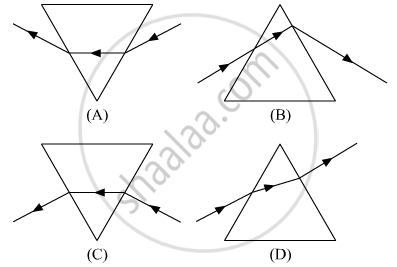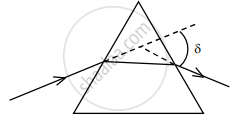Advertisements
Advertisements
Question
You are given a disc divided into seven sectors with colours violet, indigo, blue, green, yellow, orange and red in them. What would be its colour when it is rotated rapidly?
Solution

Newton’s colour disc— It is a circular disc taken by Newton to demonstrate that the recombination of seven colours produces white light. A circular cardboard disc which is divided into seven sectors and they were painted with the seven colours of VIBGYOR. The disc when rotated at a very high speed appears WHITE.
APPEARS IN
RELATED QUESTIONS
Describe an activity to show that colours of white light splitted by a glass prism can be recombined to get white light by another identical glass prism. Also draw ray diagram to show the recombination of the spectrum of white light.
What are the seven colours seen in a rainbow?
The diagram below shows the path taken by a narrow beam of yellow monochromatic light passing through an equiangular glass prism. If the yellow light is replaced by a narrow beam of white light incident at the same angle, draw another diagram to show the passage of white light through the prism and label it to show the effect of prism on the white light.

In which of the following four diagrams is the correct path of a ray of light passing through a glass prism shown ?
An object is placed in front of a converging lens and in front of a diverging lens as in fig.

(a)Complete the ray diagram to obtain an image.
(b)Compare the nature of image formed by both the lenses in the above case.
How can the presence of ultraviolet radiation be detected?
State two uses of ultraviolet radiation.
Say TRUE or FALSE
After passing through a prism, white light splits into a band of seven colours
The periscope is an optical device with a polished surface that reflects the light falling on it.
The angle of deviation through a prism is minimum when

- Incident rays and emergent rays are symmetric to the prism.
- The refracted ray inside the prism becomes parallel to its base.
- The angle of incidence is equal to that of the angle of emergence.
- When the angle of emergence has doubled the angle of incidence.
Choose the correct answer from the options given below:
